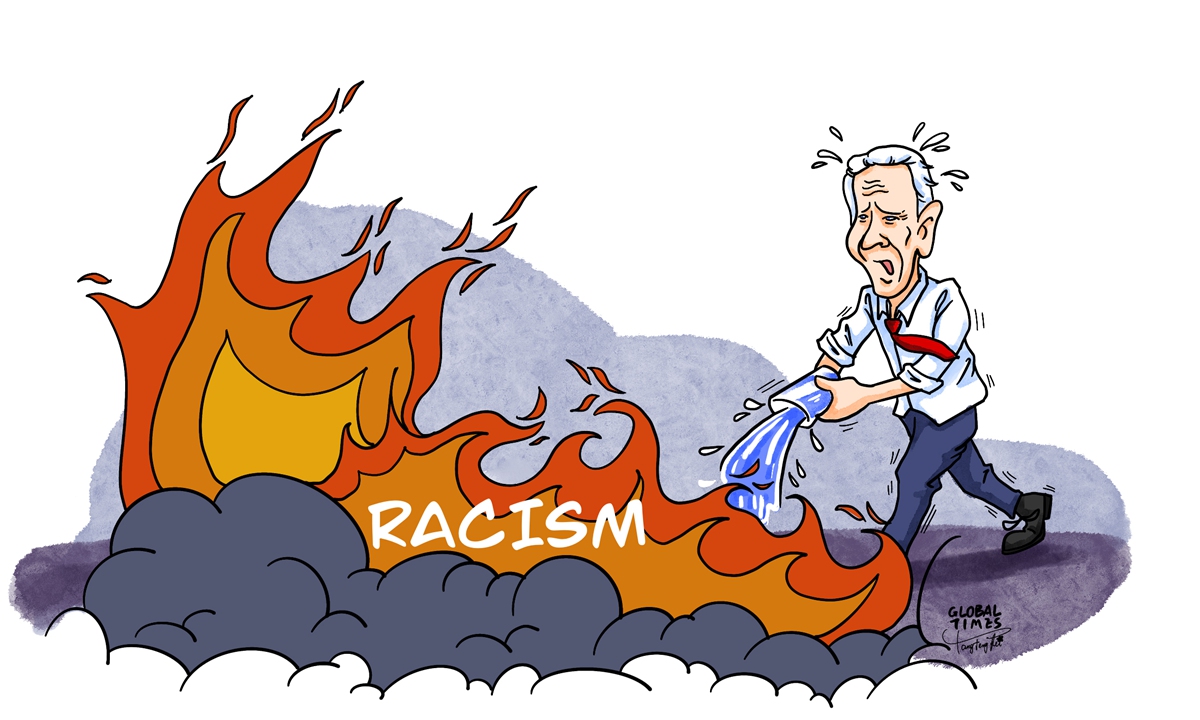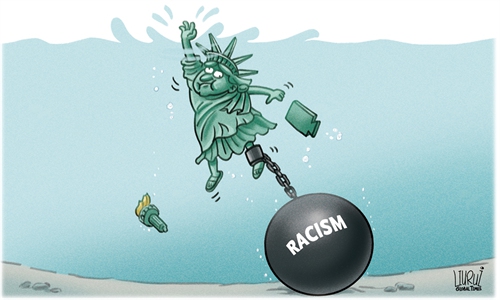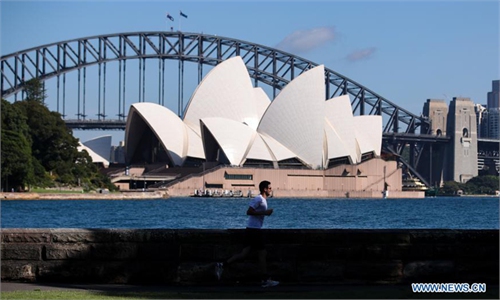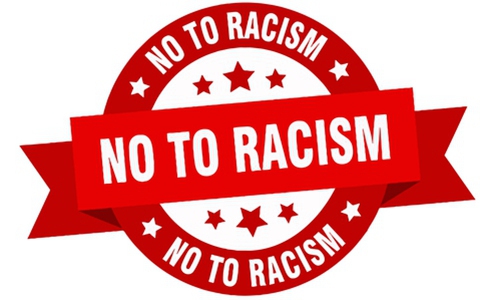
Illustration: Tang Tengfei/GT
The situation of Asian Americans in the US has recently become increasingly difficult. Physical and verbal abuses against Asian Americans dramatically increased after the COVID-19 outbreak. There are also more discussions online: Why did the American society take a relatively cold attitude toward discrimination against Asian Americans?A new study based on police departments' statistics in major US cities has found a nearly 150 percent surge in anti-Asian hate crimes in 2020. By contrast, the number of overall hate crimes fell by 7 percent. US President Joe Biden on Thursday condemned the violence that Asian Americans have endured on the one year marker since the World Health Organization declared the COVID-19 a pandemic. He also signed a memorandum condemning and combating racism, xenophobia and intolerance against Asian Americans and Pacific Islanders in the US.
However, these measures cannot fundamentally change Asian Americans' situation in the US. Discriminations against Asians did not appear only after the Biden administration came to power. It is a historical problem in the US. Worse, during the COVID-19 pandemic, former US President Donald Trump's discrimination against Chinese people and Asians exacerbated the situation. Biden's words and policies can show his attitude, and this may slightly ease the situation and arouse people's attention to the problem. But it is impossible to eradicate discrimination against Asian Americans.
Fighting against racial discrimination is a politically correct topic in the US. Moreover, racial violence is not only a problem between the white population and African Americans. Asian Americans have also suffered from severe discrimination. But the US will not take the problem as urgent and serious as the way they treat anti-African American racial violence.
This is because when encountering discrimination, African Americans tend to cling together and resist toughly. But Asian Americans do not do so. Their methods of resistance are too mild. Therefore, when Asian Americans face discrimination in the US, the reactions are not as strong as when African Americans demonstrate. This also can partially explain why the status of African Americans has improved rapidly while other minorities' have not.
The actual influence of Asian Americans in US society is now very limited. First, Asian Americans only make up a small percentage of the US population. And Asian Americans are generally not very interested in participating in politics. Although the awareness of participating in politics has increased in recent years, it has not become a common trend. In addition, there are not enough institutions that can effectively connect and mobilize Asian Americans across the country. Asian Americans are also less spiritually connected. There may be great differences in their languages, religions and cultures.
The image of Asian Americans in the US is usually associated with the "yellow peril" stereotype - an ultranationalist theory formed in the 19th century. They also suffer stereotypes and slurs such "tiger mother," "spies" and "infectious diseases." An article in the New York Times noted that, "this recent onslaught of anti-Asian violence can partly be attributed to former president. But he could not have rallied the kind of hatred that he did without this country's long history of systemic and cultural racism against people of Asian descent." Some insulting historical symbols have been handed down to these days. It goes without saying that some white people in the US, especially some political elite groups, have a deep-rooted mentality of white supremacy.
The US has long claimed to oppose radical discrimination, but the specific degree of anti-discrimination varies among ethnic minorities. It is hypocritical that the US has a double standard, and even multiple standards in dealing with racial discrimination. And it is ironic that the US, which proclaims itself to be a "melting pot," is erupting into deep racial hatred. The objective reality is that the more intense the opposition to racial discrimination a place in the US is, the more racial discrimination it tends to be.
Racial discrimination in the US is deeply rooted against Asian Americans and other minorities. Opposition to racial discrimination is a universal human rights norm recognized by the UN, so it is a bonus point for US politicians to score with. But no matter what kind of political correctness or policies are put in place, the US will not eradicate the problem of racial discrimination.
The author is a professor with the Institute of International Relations at the China Foreign Affairs University. opinion@globaltimes.com.cn



